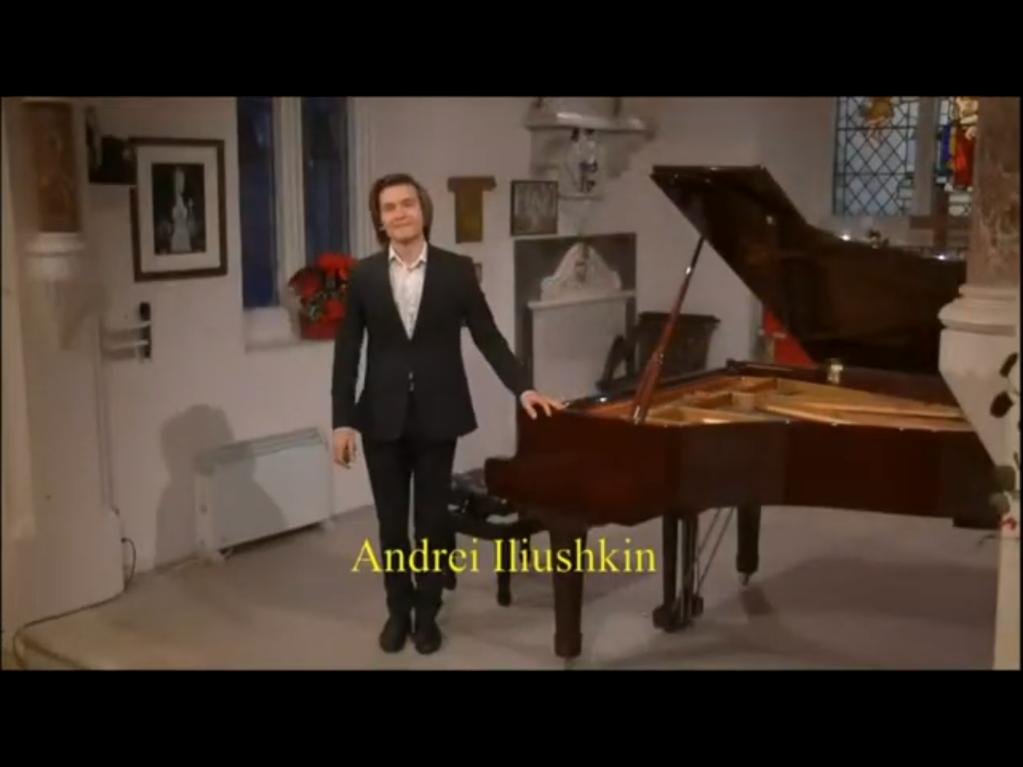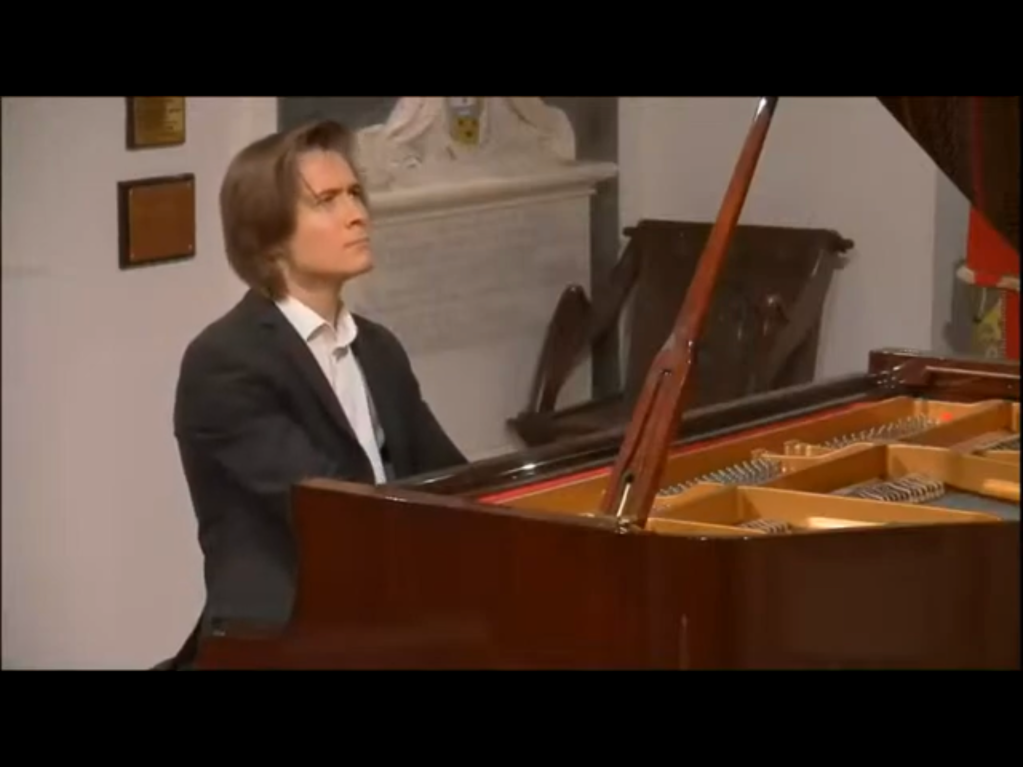Sunday 6 December 4.00 pm

Andrei Iliushkin (piano)
Bach: Chromatic Fantasy and Fugue BWV903
Schubert: Piano sonata in C minor D958
Allegro-Adagio-Menuetto allegro-Trio -Allegro
Janacek: Piano Sonata 1.X.1905 From the street Foreboding-con moto Death-Adagio

Some very fine playing from this young Russian pianist that showed off his ultra sensitivity to sound and a quite remarkable finger legato.
The Chromatic Fantasy and Fugue was played with masterly control .The opening played without the help of either pedal but played with such ravishing sound and perfect legato.The addition of the pedal for the swirling arpeggios and recitato was of startling effect as was the whispered entry of the fugue subject.A remarkably refined performance and what it missed in dramatic contrasts it gained in aristocratic control of subtle delicate sounds.

The Schubert Cminor Sonata D958 is the most Beethovenian of Schubert’s last great trilogy.D.958, 959 and 960, are Schubert’s last major compositions for piano and they were written during the last months of his life, between the spring and autumn of 1828, but were not published until about ten years after his death, in 1838-39.Schubert had been struggling with syphilis since 1822–23, and suffered from weakness, headaches and dizziness. However, he seems to have led a relatively normal life until September 1828, when new symptoms appeared. At this stage he moved from the Vienna home of his friend Franz von Schober to his brother Ferdinand’s house in the suburbs, following the advice of his doctor; unfortunately, this may have actually worsened his condition. However, up until the last weeks of his life in November 1828, he continued to compose an extraordinary amount of music, including such masterpieces as the three last sonatas.
Played with superb control and ravishing sound of great introspection which missed the full dramatic impact of the first of the trilogy that was to end with the sublime outpouring of song of the Sonata in B flat.The Adagio was played with a quite remarkably sensitive tone palette as was the Menuetto and Trio.The swirling frenzy of the tarantelle like last movement I remember so well from the drive and rhythmic urgency of Richter.Andrei has the same fantastic control but the drive and passion he substitutes for ravishing beauty and calm.All Eusebius and Floristan only occasionally looking on from afar.A remarkable sense of architectural shape and impeccable musicianship but lacking in contrast and character.

The Janacek Sonata on the other hand found the perfect interpreter with the magical sounds and deep introspection of this profoundly felt masterpiece .Only in two movements Foreboding and Death the third Funeral march had been destroyed by the composer as he had thrown the entire work into the river.It is only thanks to the first performer who had made a copy that the works exists today.
Janáček intended the composition to be a tribute to a worker named František Pavlík (1885–1905), who on 1 October 1905 was bayoneted during demonstrations in support for a Czech university in Brno.In the work, Janáček expresses his disapproval of the violent death of the young carpenter and he started to compose it immediately after the incident occurred and finished it in January 1906. The première took place on 27 January 1906 in Brno (Friends of the Arts Club), with Ludmila Tučková at the piano. Janáček also wrote a third movement, a funeral march, which he cut out and burned shortly before the first public performance of the piece in 1906. He was not satisfied with the rest of the composition either and later tossed the manuscript of the two remaining movements into the river Vltava. He later commented with regret about his impulsive action: “And it floated along on the water that day, like white swans”.The composition remained lost until 1924 (the year of Janáček’s seventieth birthday), when Tučková announced that she owned a copy. The renewed premiere took place on 23 November 1924 in Prague, under the title 1. X. 1905. Janáček later accompanied the work with the following inscription:
“The white marble of the steps of the Besedni dum in Brno. The ordinary labourer František Pavlík falls, stained with blood. He came merely to champion higher learning and has been slain by cruel murderers.”
Some remarkable playing of a true poet of the piano

Described as a “pure and sensitive musician” by the Chopin Magazine (Japan), Andrei has been performing as a soloist in various renowned concert halls throughout the Netherlands, Germany, Italy, Russia, Spain, Japan, Norway and the UK, as well as collaborating with orchestras of London, Moscow, Rostov, Yaroslavl and Shenzhen. Following his London debut on stage of Wigmore hall in October 2015 as a finalist of Jaques Samuel Piano Competition, Andrei gave a recital at the prestigious St. Martin-in-the-Fields as the winner of Intercollegiate Beethoven Piano Competition, as well as various concerto performances at St. John’s Smith Square (for Parkinson’s UK and the 75th Anniversary of the Siege of Leningrad). Showing a great interest in a chamber music, Andrei was invited to perform in Encuentro de Santander chamber music festival (Santander, Spain). He was also honoured to perform J. Brahms’ Piano Quintet with Maxim Vengerov at the Royal Academy of Music. He is a recipient of Beethoven Silver Medal and Carnwath Piano Scholarship, both awarded by the Worshipful Company of Musicians. After his successful performances in 10 th Hamamatsu Piano Competition and reaching semifinal, he received an award of Outstanding Merit.
